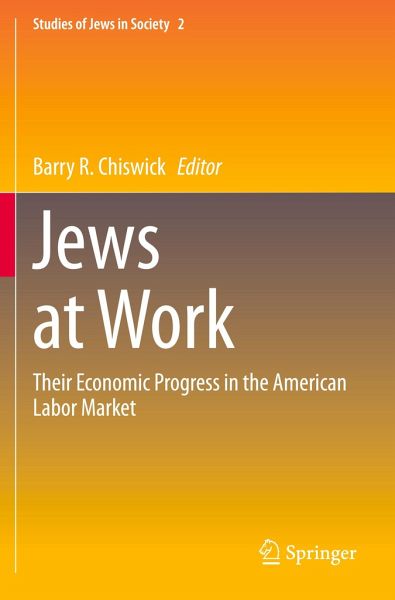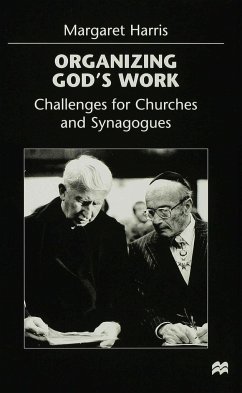
Jews at Work
Their Economic Progress in the American Labor Market
Herausgegeben: Chiswick, Barry R.
Versandkostenfrei!
Versandfertig in 6-10 Tagen
113,99 €
inkl. MwSt.

PAYBACK Punkte
57 °P sammeln!
This book addresses the educational, occupational, and income progress of Jews in the American labor market. Using theoretical and statistical findings, it compares the experience of American Jews with that of other Americans, from the middle of the 19th century through the 20th and into the early 21st century.Jews in the United States have been remarkably successful; from peddlers and low-skilled factory workers, clearly near the bottom of the economic ladder, they have, as a community, risen to the top of the economic ladder. The papers included in this volume, all authored or co-authored by...
This book addresses the educational, occupational, and income progress of Jews in the American labor market. Using theoretical and statistical findings, it compares the experience of American Jews with that of other Americans, from the middle of the 19th century through the 20th and into the early 21st century.
Jews in the United States have been remarkably successful; from peddlers and low-skilled factory workers, clearly near the bottom of the economic ladder, they have, as a community, risen to the top of the economic ladder. The papers included in this volume, all authored or co-authored by Barry Chiswick, address such issues as the English language proficiency, occupational attainment and earnings of Jews, educational and labor market discrimination against Jews, life cycle and labor force participation patterns of Jewish women, and historical and methodological issues, among many others. The final chapter analyzes alternative explanations for theconsistently highlevel of educational and economic achievement of American Jewry over the past century and a half.
The chapters in this book also develop and demonstrate the usefulness of alternative techniques for identifying Jews in US Census and survey data where neither religion nor Jewish ethnicity is explicitly identified. This methodology is also applicable to the study of other minority groups in the US and in other countries.
Jews in the United States have been remarkably successful; from peddlers and low-skilled factory workers, clearly near the bottom of the economic ladder, they have, as a community, risen to the top of the economic ladder. The papers included in this volume, all authored or co-authored by Barry Chiswick, address such issues as the English language proficiency, occupational attainment and earnings of Jews, educational and labor market discrimination against Jews, life cycle and labor force participation patterns of Jewish women, and historical and methodological issues, among many others. The final chapter analyzes alternative explanations for theconsistently highlevel of educational and economic achievement of American Jewry over the past century and a half.
The chapters in this book also develop and demonstrate the usefulness of alternative techniques for identifying Jews in US Census and survey data where neither religion nor Jewish ethnicity is explicitly identified. This methodology is also applicable to the study of other minority groups in the US and in other countries.












